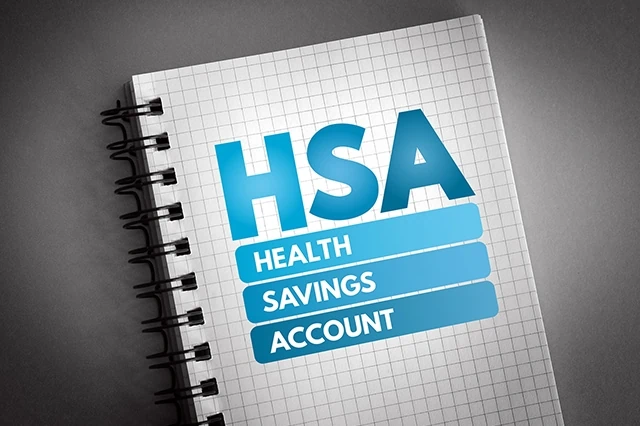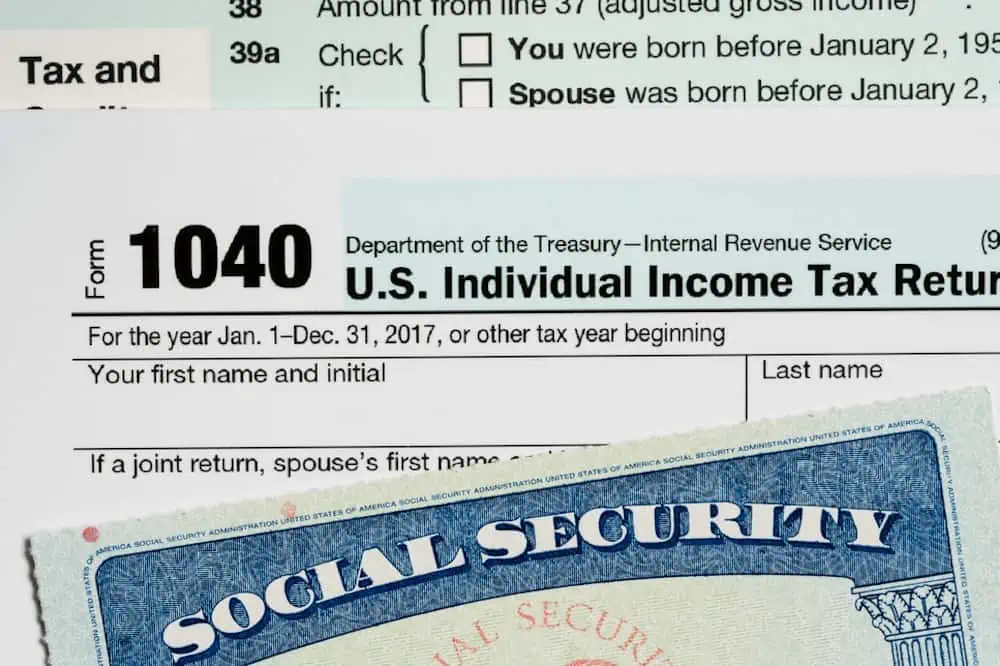Medicare is instrumental in ensuring that older adults, as well as individuals of all ages with certain medical conditions, have access to affordable health care.
It’s also infuriatingly complex in some respects.
According to the 2024 KFF Survey of Consumer Experiences, 37% of respondents said it was either “somewhat difficult” or “very difficult” to understand at least one of five aspects of their Medicare coverage. That’s at least better than employer-sponsored insurance (54%) or Medicaid (46%), but it’s still a high percentage that shows many Americans don’t know Medicare inside and out.
Today, I’m going to clear up some of your Medicare confusion. I’ve compiled a list of some of the most frequently asked questions (FAQs) about Medicare, and (more importantly) answers to those questions. The better you understand this vital social program, the easier it should be to make educated decisions regarding it.
Table of Contents
Common Medicare Questions

If you think learning about Medicare is difficult and frustrating, you’re not alone. Medicare is a complex system, and even direct sources like Medicare.gov and SSA.gov occasionally provide unclear or even conflicting information.
To help you get some clarity, read on. I’ll discuss some of the most popular Medicare questions to help you better understand the ins and outs of this health care program.
1. What are Medicare “Parts”?

Each Medicare “Part” is a different type of program that provides a certain type of coverage.
— Part A focuses on the more urgent and critical aspects of health care, such as inpatient hospitals, hospice centers, inpatient rehab, and more.
— Part B delivers coverage for other health care products and services that Part A doesn’t cover, such as outpatient hospital visits, physicians’ services, some home health services, and durable medical equipment.
— Part C is Medicare provided by private insurers. Part C offers what’s covered under Parts A and B, as well as the prescription drug care offered under Part D.
— Part D is also a private-insurance option that covers the costs of self-administered prescription drugs.
Part A is premium-free for roughly 99% of Americans, and you are typically auto-enrolled in the program. The other Medicare Parts usually require a premium, though there are programs that can help you with the cost.
2. What is ‘Original Medicare?’

“Original Medicare” refers to Medicare Parts A and B. The two are grouped together because they were Medicare’s original two components when the system was signed into law in 1965.
These plans cover different health care needs that fill in each other’s gaps. Part A focuses on the more urgent and critical aspects of health care, while Part B covers preventative and medically necessary services and supplies.
Medicare users can typically choose to have Part A, or Part A and Part B. In rare circumstances—namely, you qualify for Part A, but must pay a premium—you can have Part B but not Part A.
Related: Best Vanguard Funds to Hold in an HSA
3. What is Medicare Advantage?

Medicare Advantage is just another name for Medicare Part C.
It’s also the most recent. Part C was established in 1985 by the Tax Equity and Fiscal Responsibility Act (TEFRA), which was passed three years earlier. The act authorized Medicare to contract with private risk-based health plans.
It wasn’t until the Balanced Budget Act of 1997 (BBA) that Part C was officially designated as “Part C.” It also was named Medicare+Choice (M+C). The Medicare Prescription Drug, Improvement, and Modernization Act of 2003 (MMA)—which also was responsible for the creation of Part D—eliminated the M+C moniker in favor of Medicare Advantage.
4. What is Medigap?

Medigap, aka Medicare Supplement, isn’t part of the government’s Medicare program, but rather supplemental coverage that people with Original Medicare have the option to purchase. This coverage works with any doctor or hospital that accepts Medicare, and it can reduce the out-of-pocket expenses Original Medicare doesn’t cover. The amount of coverage you receive depends on the policy you choose.
Related: Retired But Too Young for Medicare? Health Insurance for Early Retirees
5. What is the Medicare Part D ‘Donut Hole’?

Medicare Part D has long had a coverage gap known as the “donut hole.”
A person enters the donut hole after the individual and drug plan have spent $5,030 on covered drugs in 2024. During the coverage gap, you pay no more than 25% of your drug costs. For brand-name prescriptions, almost the full price of the drug counts toward your out-of-pocket spending. For generic drugs, only what you pay counts. You can leave the donut hole after your out-of-pocket spending reaches $8,000.
Beginning in 2025, however, there will be a $2,000 cap on what a person with Part D coverage pays for out-of-pocket prescription drugs. After that, they automatically enter catastrophic coverage and don’t have to pay out-of-pocket for the remainder of the calendar year. The cap will be indexed to rise every year after 2025 based on the rate of growth in per capita Part D costs.
Related: What Is Social Security ‘COLA’?
6. Who is eligible for Medicare?

Medicare is mainly for adults age 65 and older. However, you may also qualify for Medicare if you have any of the following:
— A disability, and have been receiving Social Security Disability benefits for 24 months)
— End-stage renal disease (ESRD)
— Amyotrophic lateral sclerosis (ALS, aka Lou Gehrig’s disease)
Eligibility is largely based on your work history. For a much more complete picture of these eligibility requirements, check out our primer, “What is Medicare?“
Some people are automatically signed up for Medicare, while others need to take action to sign up.
7. How is Medicare funded?

Medicare is mainly funded through payroll taxes paid by most employees, their employers, and self-employed workers. It also grows from income taxes paid on Social Security benefits, Medicare Part A premiums for people who don’t qualify for premium-free Part A, and interest from trust fund investments.
The money is held in two trust fund accounts held by the U.S. Treasury. This money cannot be allocated to expenses other than Medicare.
Related: Best Schwab Funds to Hold in an HSA
8. Can Medicare plans be discontinued?

Yes. The Centers for Medicare and Medicaid Services may discontinue underperforming Medicare Advantage or Part D plans. A private carrier could also drop your plan, stop offering any plans, or go bankrupt.
In this situation, you should be eligible for a Special Enrollment Period. That means you can re-enroll for Original Medicare and quickly regain coverage.
9. Do I lose Medicare if I return to work?

Don’t worry about losing Medicare if you return to the workforce. When you start working again, assuming your employer has at least 20 employees, you’ll typically have the following options:
— Opt out of your workplace plan and just use Medicare.
— Drop Medicare Part B and/or D and just use the workplace plan.
— Use both Medicare and your employer’s group plan.
If you use both Medicare and your employer’s plan, each type of coverage is referred to as the payer. The primary payer would contribute up to the limits of its coverage before sending the remaining balance to the secondary payer. Any time the secondary payer won’t pay for the rest of the balance, you might be responsible for it. (Note: If your workplace plan is the secondary payer, you might need to sign up for Part B before they will pay.)
However, if your employer has fewer than 20 employees, you usually need to enroll in Medicare during your Initial Enrollment Period. If you get coverage through a spouse’s plan, you’ll need to check the employer’s rules to learn if they must enroll at age 65 or can delay enrollment.
For Medicare that a person receives for a disability, Medicare.gov states: “You can keep your disability for as long as you’re medically disabled. If you return to work, you won’t have to pay your Part A premium for the first 8½ years. After that, you might be able to buy Part A coverage and pay a monthly premium. If you can’t afford the Part A premium, you may be able to get help from your state.”
Related: How to Invest HSA Funds [Level Up Your Retirement Savings]
10. How much are Medicare premiums?

How much you pay for Medicare premiums depends on your plan.
— Part A: Most Americans get premium-free Medicare Part A. Those who have to pay for Part A premiums will either pay $278 or $505 per month, depending on their circumstances. Also, people who don’t enroll in Part A when they first become eligible might have to pay a penalty.
— Part B: In 2024, most people paid $174.70 per month. However, if your income exceeds certain thresholds, you could pay more. (I’ll address this in detail below.) Premium costs max out at $594 per month for people who make at least $500,000.
— Part C: Medicare Advantage premiums vary depending on one’s chosen plan. Based on Centers for Medicare data, the projected 2024 average premium was $18.50.
— Part D: Part D premiums vary depending on one’s chosen plan. However, if your income exceeds certain thresholds, you could pay more. (I’ll address this in detail later in the article.) CMS projects put the 2024 average total monthly premium for prescription drug coverage at $55.50.
11. Does Medicare have an income limit?

Medicare has no income limit, so feel free to accept a hefty raise without sweating your Medicare eligibility.
That said, a higher income might affect your Medicare Part B and Part D premiums.
For most people, the government covers 75% of the Part B premium, and the beneficiary pays the remaining 25%. However, above certain earnings thresholds, an income-related monthly adjustment amount (IRMAA) kicks in—depending on your IRMAA, you could be responsible for as much as 85%. (Note: IRMAA is based on income listed on your tax return from two years prior.)
Part D coverage also factors in IRMAA. With Part D, this is an additional amount you pay on top of your plan’s premium. For instance, for 2024, someone with MAGI of more than $103,000 up to $129,000 would have to pay an additional $12.90 per month on top of their monthly premium.
Fortunately, income-based adjustments are rare. Currently, only 7% of Part B enrollees and 8% of Part D enrollees are subject to IRMAA.
Related: Best Fidelity Funds to Hold in an HSA
12. Can becoming incarcerated affect Medicare?

Yes. If you are covered by Medicare and are incarcerated for fewer than 30 days, you won’t be covered by Medicare while incarcerated. Instead, your medical needs will be covered by the penal authorities. However, you still need to pay your Medicare premiums so that your coverage will resume after you’re released.
If you’re incarcerated for longer and convicted of a crime, your benefits will stop. You can get them reinstated after you’re released. However, if you are collecting Medicare for a disability and are under age 65, you need to have your Social Security Disability Insurance reinstated before your Medicare coverage can start again.
13. Does Medicare cover dental?

Unfortunately, Medicare Part A and Part B do not provide what you would consider traditional dental coverage, which would include products and services such as cleanings, root canals and dentures. Instead, Original Medicare only covers dental work that is medically necessary (for instance, if you have neck cancer, some associated dental care may be covered), as well as other costs such as inpatient fees should a dental procedure require a hospital stay.
Some Part C plans do cover routine dental services. Otherwise, you will have to purchase a separate dental plan.
Related: The Best Retirement Plans for 2024 [Workplace + Individual]
14. Does Medicare cover vision?

Similarly, Original Medicare typically doesn’t cover routine eye care services, like yearly vision screenings or glasses.
In some situations, however, Part B will cover an eye exam. For instance, you may receive a covered exam for diabetes-related vision issues.
Some services related to chronic eye conditions are also partially covered with the policyholder paying 20% of the Medicare-approved amount.
Often, Medicare Advantage plans cover annual vision exams and offer an allowance for prescription eyewear. But again, if your Part C does not provide this kind of coverage, you’ll have to find a private plan.
15. Does Medicare cover hearing?

For Original Medicare to pay for hearing services, a problem needs to be established. For instance, if you have been experiencing hearing loss or having balance issues for 12 or more months, Medicare will cover an audiologist visit without requiring a referral. Qualifying patients can then have a covered audiology visit at most once every 12 months.
Some Medicare Advantage plans provide hearing-related coverage, and most cover hearing aids.
Related: 9 Financial Mistakes That Can Quickly Drain Your Retirement Savings
16. Can you contribute to an HSA if you collect medicare?

No, you cannot contribute to a health savings account (HSA) once you are enrolled in Medicare.
It’s recommended to stop contributing to your HSA six months prior to applying for Social Security retirement benefits to avoid the possibility of tax penalties.
The good news? If you already have an HSA, you can still use it to make tax- and penalty-free withdrawals for qualified medical expenses at any age, and penalty-free withdrawals for any purpose once you reach age 65.
17. When is the Medicare enrollment period?

Medicare actually has multiple enrollment periods.
Your retirement Medicare Initial Enrollment Period (IEP) lasts for seven months. It begins three months before you turn 65 and ends three months after you turn 65.
However, if your birthday lands on the first of the month, your seven months are a bit different—in that situation, your IEP starts four months before you turn 65 and ends two months after the month you turn 65. (For example, if your birthday is July 1, your IEP would span March to September.)
Premium-free Part A coverage starts on the first of the month in which you turn 65. Part B and premium Part A coverage begins on the first of the month you turn 65 if you sign up before the month in which you turn 65, or the following month if you sign up during the month you turn 65 or the three months afterward.
If you miss your Initial Enrollment Period, you would have to wait to sign up during one of two other enrollment periods:
— General Enrollment Period (GEP): Jan. 1 to March 31 every year. Coverage begins the month after you sign up.
— Special Enrollment Period (SEP): An enrollment period triggered by any number of events, including (but not limited to) dropping out of an employer plan, losing Medicaid coverage, and being released from incarceration. Period length and the start of coverage varies depending on your special event.
If you miss your IEP and sign up during a GEP, you often will have to pay a late enrollment penalty, which impacts your monthly premiums. This is a temporary penalty for Part A, but typically a lifetime penalty for Parts B and D. You typically won’t have to pay a penalty if you enroll for Medicare during a Special Enrollment Period.
Disability Medicare works differently.
Once a person applies for Social Security and is deemed disabled, there is a five-month waiting period before they begin receiving Social Security Disability benefits.
After 24 months of receiving Social Security Disability benefits, a person is automatically enrolled in Medicare.
(Note: People with ALS can receive Medicare automatically once they start receiving disability benefits, no 24-month waiting period required. People with ESRD can also have the 24-month waiting period waived, but when their coverage begins depends on their circumstances.)
Related: How Much Should I Save Each Month?
18. How do I find a doctor who accepts Medicare?

The vast majority of physicians accept Medicare, but you still want to make sure you are employing the services of professionals who do.
You can find physicians, hospitals, and other care facilities that accept Medicare through Medicare.gov’s Care Compare tool. It includes filters and maps to help you find providers wherever you need them. It allows you to search for doctors who have performed specific types of procedures. And it provides other resources to help make choosing a health care provider simpler.
19. What’s the difference between Medicare and Medicaid?

Medicare and Medicaid sound the same, and are the nation’s two biggest sources of health insurance (behind employer-based plans). But they’re different.
To start, Medicare is federal health insurance, while Medicaid is a joint federal and state program.
Medicare is for adults age 65 and individuals with certain disabilities or conditions, while Medicaid is for people with limited income and resources.
Another big difference between these programs is what people pay. Medicare users typically pay some of their own costs through expenses like premiums, deductibles, and coinsurance. Usually, people with Medicaid don’t have to pay for covered medical expenses, though they might have a small copay for some services or items.
Also, it’s possible to be “dually eligible” for both Medicare and Medicaid.
Related: Do I Need a Financial Advisor? 7 Questions to Ask Yourself
20. Is Medicare Mandatory?

No, Medicare isn’t mandatory. However, in some situations, you might be automatically enrolled, so you would have to take some steps to opt out.
Importantly, if you decline Medicare, you might lose your Social Security or Railroad Retirement Board benefits. Also, if you initially opt out of Medicare coverage and later decide to enroll, you might have to pay a penalty.
Related: Is Your Retirement on Track? Here Are the Average 401(k) Balances By Age
Related: 11 Ways To Avoid Paying Taxes on Your Social Security

If you’re looking to minimize the tax bite taken out of your Social Security benefits in retirement, you’ve got several available actions to reduce how much you pay each year. We outline several ways to avoid paying taxes on your Social Security benefits.
Related: How Are Social Security Benefits Taxed?

In many cases, Social Security benefits are subject to federal taxation. To learn how your Social Security benefits are taxed, we’ve got an entire guide to walk you through the calculation.
Related: 10 States That Tax Social Security Benefits

While most states don’t subject Social Security benefits to taxation, at least 10 states do tax Social Security. To see if you live in one of them, or you’re considering a relocation for retirement and taxation of your Social Security is a sticking point, we’ve got you covered with all of the details.
Please Don’t Forget to Like, Follow and Comment

Did you find this article helpful? We’d love to hear your thoughts! Leave a comment with the box on the left-hand side of the screen and share your thoughts.
Also, do you want to stay up-to-date on our latest content?
1. Follow us by clicking the [+ Follow] button above,
2. Subscribe to The Weekend Tea, our weekly newsletter to read more about investing, spending, taxes, and more, and
3. Give the article a Thumbs Up on the top-left side of the screen.
4. And lastly, if you think this information would benefit your friends and family, don’t hesitate to share it with them!





